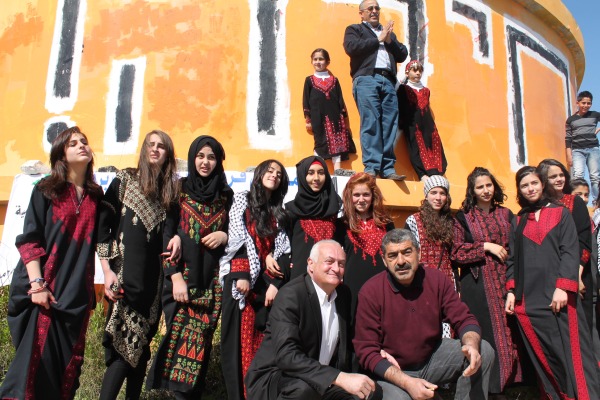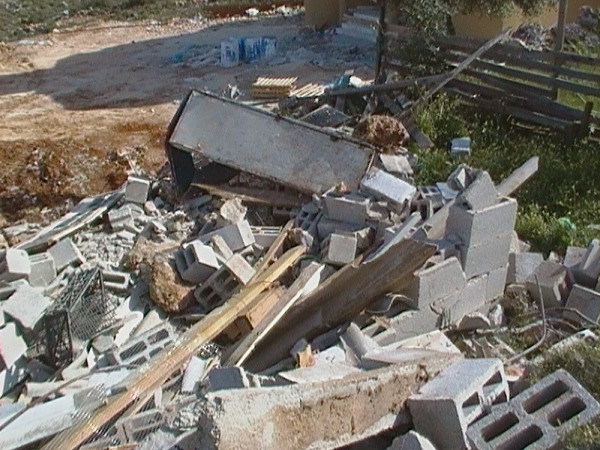Category: Nablus
-
The fight for the freedom of the 5 Hares Boys continues
6th April 2014 | International Solidarity Movement, Nablus Team | Occupied Palestine In a conversation with Neimeh and Yaseen Shamlawi in their home in Hares we hear about the traumatic journey they have gone through but also the painstaking efforts they have made to build a campaign for their son’s freedom ever since he was arrested…
-
Burqa festival marks reclaiming of Mas’oudia land
6th April 2014 | International Solidarity Movement, Nablus Team | Burqa, Occupied Palestine Today, the 5th of April, the village of Burqa, south of Nablus, held a march and festival to reclaim parts of their land in Mas’oudia, trying to alter it from area C to area B. The village of Burqa had sent an application to…
-
Demolitions in Bruqin: “If you really want peace, you wouldn’t take what’s mine”
2nd April 2014 | International Solidarity Movement, Nablus Team | Bruqin, Occupied Palestine On the 1st of April, at approximately 5.30 AM, a bulldozer and eight military jeeps arrived in the village of Bruqin close to the city of Nablus. The bulldozer first destroyed a farmers shed, killing the ten rabbits inside. The destruction continued…



